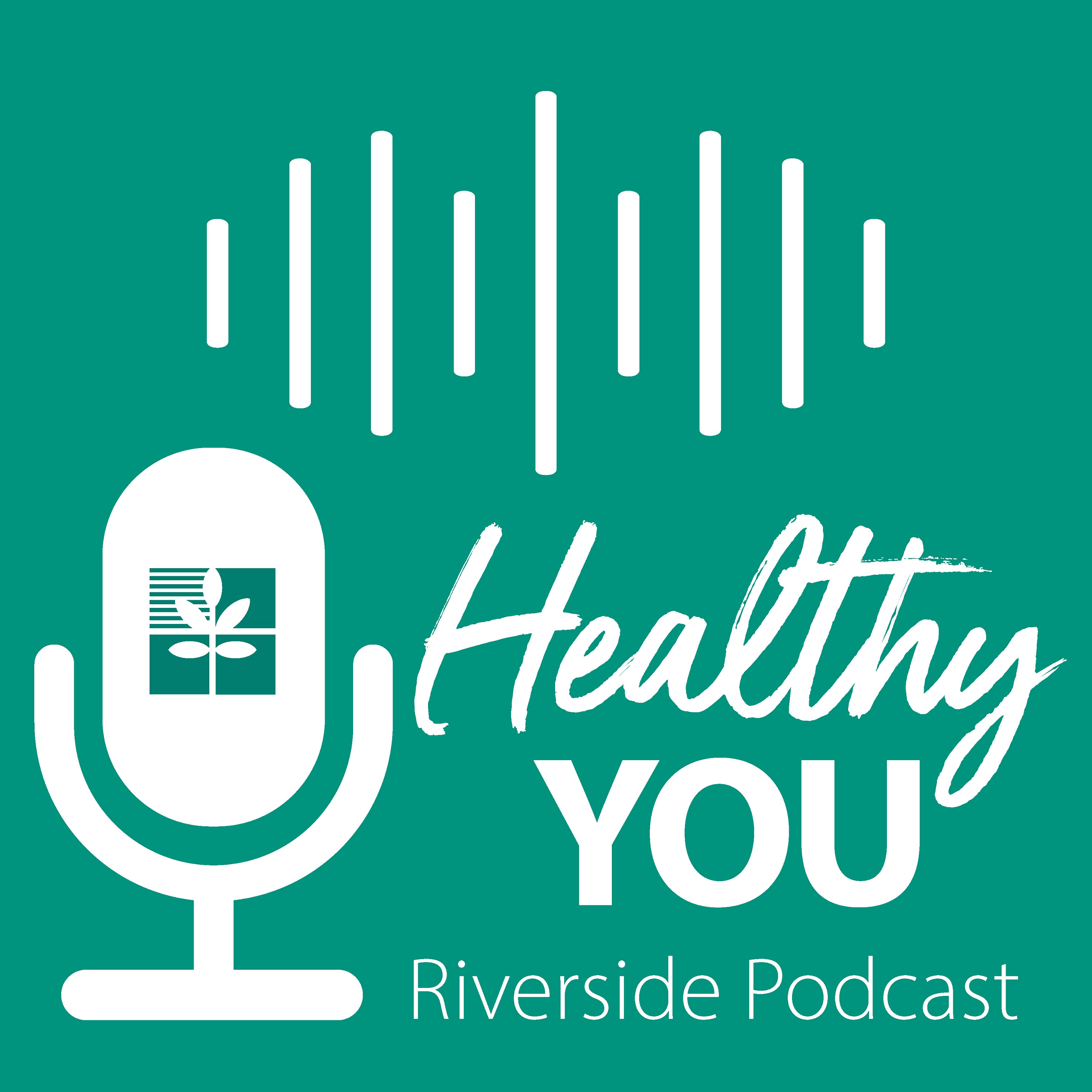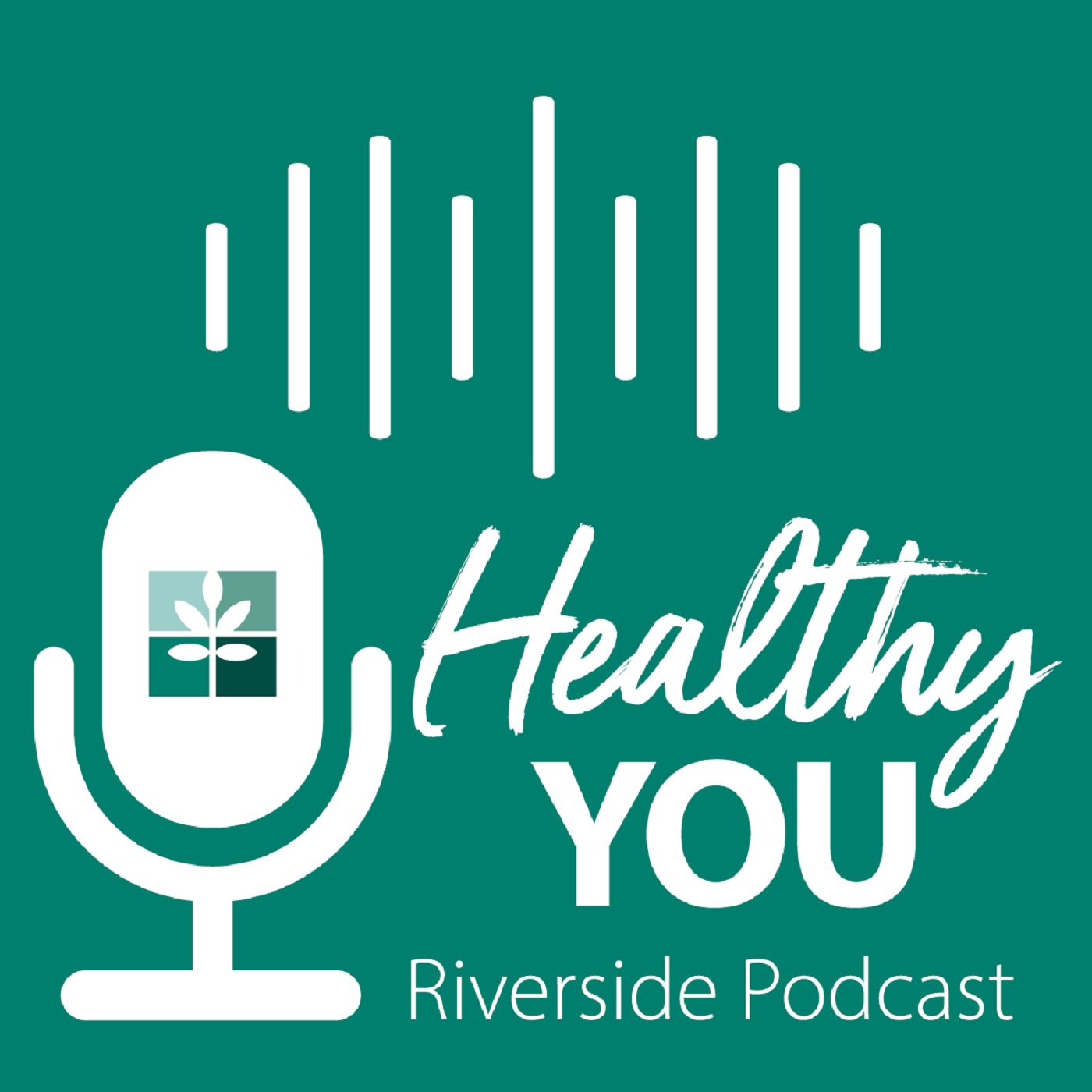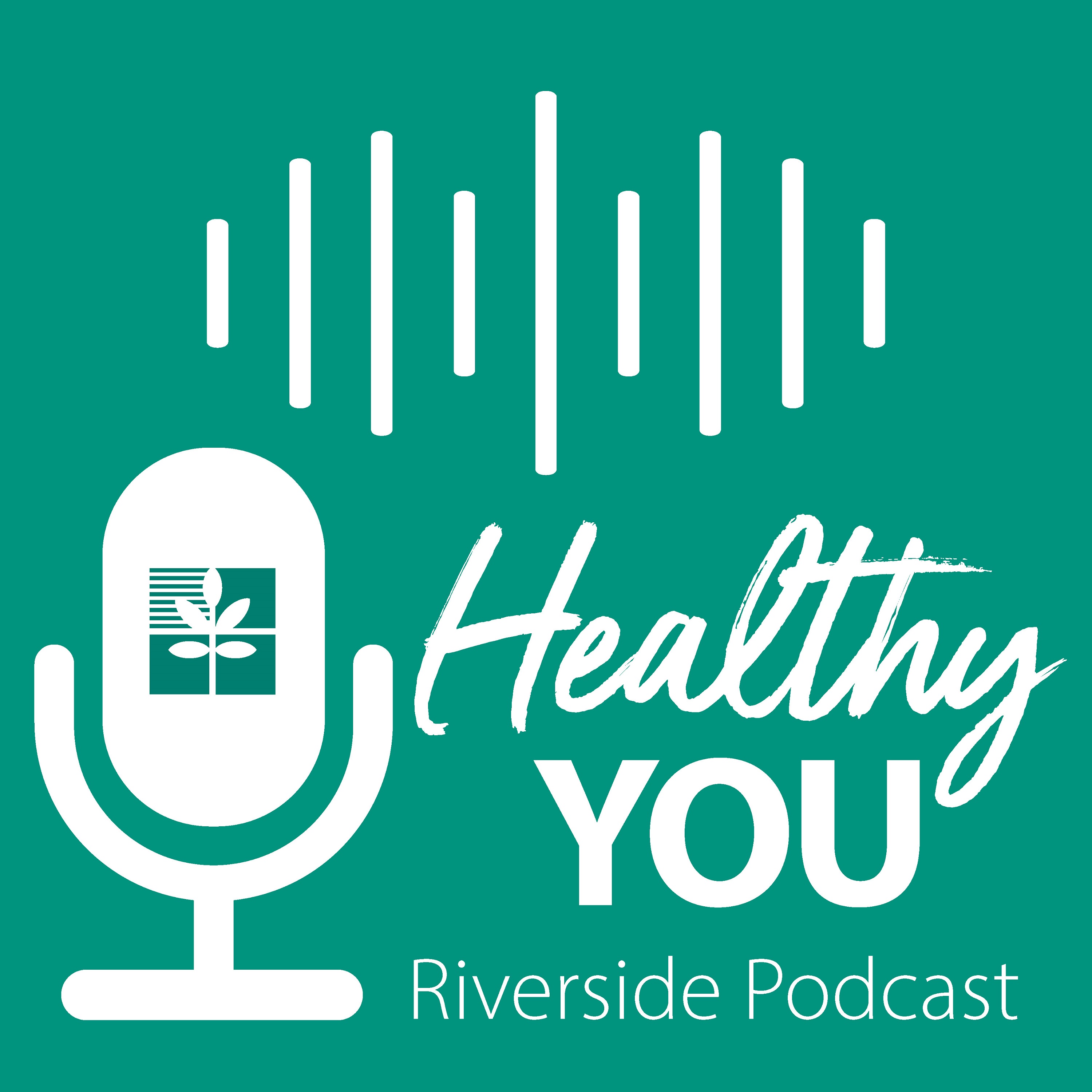Episode Transcript
[00:00:00] Speaker A: From Riverside health system. This is the Healthy you podcast, where we talk about a range of health related topics focused on improving your physical and mental health. We chat with our providers, team members, patients, and caregivers to learn more about how to maintain a healthy lifestyle and improve overall physical and mental health. So let's dive in to learn more about becoming a healthier you.
[00:00:28] Speaker B: I am really excited to have with me today, virtually via Zoom on the healthy you podcast, Dr. Alexander Schultz.
Okay. He is a pulmonologist with Riverside eastern shore physicians and surgeons, and we're going to be talking today about vaping. So thank you for joining me.
[00:00:51] Speaker C: Absolutely. I'm glad to be here. Thanks, Frankie.
[00:00:55] Speaker B: Awesome.
So tell me why you decided to pursue a career in medicine.
[00:01:04] Speaker C: Well, I liked biology, I liked physiology, and I liked helping people. And I had not put all of that together until my sister said to me, why don't you become a doctor? And I said, no, I'm not going to become a doctor. That's much too hard, too many hours. But about two months later, I found myself applying for medical school.
And then during medical school, I got particularly interested in what was going on in the intensive care unit, which has a lot of pulmonary medicine in it, and a lot of lung medicine, and again, a lot of physiology that is dictated by how sick somebody is. And when you have people who are critically ill and need to be on respirators, breathing machines to help support them, that's all got to do with the lungs. And that's sort of how I got into that area of medicine.
And this training was for a period of three years, initially for internal medicine and an additional three years as a fellowship. And I graduated medical school in 1991 in Ireland. So I've been doing this for a little bit, and I'm finally getting good at it.
[00:02:25] Speaker B: Yes, I heard that you're not good, but you're exceptional at it.
I'm a former critical care nurse, so have worked closely with the pulmonologist, and it's been so pivotal to treating those high acuity patients.
So we're going to be talking about vaping, which is new for me. Right. Vaping is something that is new in era. Talk a little bit about what vaping is, because some of our viewers may not know what vaping is, nor have they been exposed to vaping.
[00:03:03] Speaker C: Okay. Well, I think that most people actually do know what vaping is at this point because it has been brought to the fore in many different news articles because the dangers of vaping have been talked about. And, of course, before vaping came cigarette smoking.
And what is the difference between cigarettes and vapes? So the most important thing about this is that vaping is a vapor, which is a different type of delivery of a substance than cigarettes, which are combustible. So the big difference is smoke versus vapor.
The bottom line is that the vaping is still a way to deliver nicotine for most people.
And even though I think at one point, it was developed as an idea to help people stop smoking.
And the first patent of this goes back to 1930, even though it never took off at that time. And then more patents were in 1960. And then it sort of came to the fore when a pharmacist in Beijing and China had a father die of lung cancer, and he wanted to invent something that could deliver nicotine without the harmful tar that might be in cigarettes. And so that's sort of where the whole idea came from, to use a nicotine delivery system using a vapor. And that's basically how it started. And, of course, when you inhale nicotine on its own, it's pretty harsh.
And I have smoked myself. I've never vaped.
I grew up in an era where smoking was perfectly acceptable. But we have to think back about the idea of what this is.
Smoking or vaping is all about effect. We're looking for an effect, and whether that is feeling such and such a way, or in particular for younger people, feeling part of the crowd or when they're having peer pressure, or you're feeling cool, or you're thinking that you're grown up now because you can do these things. Usually, smoking, just like alcohol, is done for effect.
[00:05:44] Speaker B: Okay.
[00:05:46] Speaker C: And one of the things I keep coming back to is sort of, what is the motivation to start smoking, vaping or anything like that? And it typically has to do with wanting to be part of the crowd, wanting to be something that you think you're not.
So it has something to do with self confidence. And, of course, teenagers are really emotionally vulnerable, and this is a fantastic time for somebody to come in and say, here, look at this. We've got something that will make you feel part of the crowd, which is what every teenager wants.
[00:06:20] Speaker B: Okay, that's great information.
I think there's some sense that vaping may not be as bad as smoking cigarettes on your health and on the environment.
Would you just talk a little bit more about that piece?
[00:06:41] Speaker C: Yeah, sure. So, first of all, it's a fallacy.
Vaping is arguably just as bad in the few years that it has been around. And of course, we don't have the luxury of decades and decades of studies, and we don't know what vaping will do long term.
What I do know is that just like with cigarette smoking, it's a gamble. You don't know if you are going to be inhaling a chemical that will damage your lungs or not.
And one of the things about these vapes is that they come in all kinds of flavors and colors, which has made them extremely attractive to teenagers. And again, you need that flavor to get down the harsh nicotine.
So we're looking at inhaling chemicals when really the lungs were meant to breathe in air.
To me, it's always a question of, why are we talking about vaping? Why are we talking about smoking? We should just be talking about breathing fresh air.
But the flavorings in vapes is where some of the chemicals are, like diacetyl, as well as some. Some heavy metals, tin, lead, nickel, and many other substances that you just don't know what you're inhaling. It is not well regulated.
And even though there have been some bans on flavors here and there, if you read through the news articles, you will see how people try to get around. And when I say people, I talk about corporations who want to market this.
They will get around in some way, manner or form by saying that this is not being sold in a pod.
It's not a cartridge, it's something else. So they can keep the original chemicals in it.
Really, when you're dealing with young people inhaling nicotine at an early age, when the brain is still developing, you are going to cause problems.
It's already been shown that people who vape have a problem with impulse control.
There are actually more fights. And some people have symptoms that sound like, look like attention deficit disorder.
And there is a greater likelihood of people who vape to have severe anxiety or depression. So which comes first? I don't know. It, again, may relate to the mental health aspects that are important to me, is dig down. Why are you doing this to begin with?
[00:09:42] Speaker B: Absolutely.
[00:09:48] Speaker C: I have a patient who is in her 30s. She was vaping at the time. She was vaping a marijuana type of substance through a commercial vape, and it damaged her lungs to the point that she is now awaiting a lung transplant, possibly.
And that's the worst of it. Some people get away with it and have lesser forms of this, but when you do, you're still left with some permanent scarring of the lungs.
You may also have simple things like sores in your mouth. You may have some degree of hair thinning.
Obviously, you can get a rash around the mouth, and it's just not a healthy way to spend the day, so to speak. There are healthier ways to deal with anxiety or depression than vaping.
[00:10:46] Speaker B: Absolutely.
I'm embarrassed to say, obviously, I'm a healthcare professional. I really am learning so much from listening to you talk about vaping, because I did not know how extensive the outcomes could be. And so I really think this podcast is going to help educate the communities and even our team members, because there is a misunderstanding that I see that they think vaping is safer than cigarettes.
[00:11:21] Speaker C: So one of the things about the United States is that the nicotine content of vapors of vapes is much higher than in the United Kingdom.
Here in the States, you can buy a ten milliliter bottle that has 60 milligrams of nicotine per mill, and in the UK, it's one third of that. It's only 20 milligrams per milliliter. So that's a significant difference in how much nicotine you can inhale per puff. And I want to share one quick thing with you. We had a recent talk that we gave to a group of middle schoolers and high schoolers, a respiratory therapist, and I got to talk about smoking and vaping, and I want to share some data from this. We had a survey afterwards, and of 130 attendees, 75% filled out a survey. It was equally divided between girls and boys who were between the ages of 13 and 19, and about 20% of them said that they had at some point smoked, vaped, or used chewing tobacco.
After the talk, which included some of the material that we've just gone over, all 15 were convinced to stop, which is an amazing thing to hear, even if the 15 don't all stop or they start again. But it seems like it has made an impact.
[00:12:56] Speaker B: Absolutely.
[00:12:56] Speaker C: So, to me, the idea of what can we do to help our teenagers? The type of intervention that might help is not necessarily the parents saying don't vape. It's not necessarily the teacher saying don't vape. It's education, bringing something to the school from a third party, so to speak, somebody who doesn't have any skin in the game, so to speak, and who may relate to the teenagers in a way that neither the teachers nor the parents can. So education is high on my list, but also how. And that seems to have been a useful forum in how to do it.
[00:13:39] Speaker B: Absolutely. We have some key relationships in this area with the high schools and students, and we're going to think more creatively about what you're talking about, how do we get into those schools and have that facetime and really educate our students about the repercussions of vaping?
[00:14:01] Speaker C: Yeah, it would be nice if it was part of the curriculum and human health.
[00:14:08] Speaker B: Absolutely. And we have to reach them where they are. I know having young folks, they don't watch tv anymore. They're on social media.
So we have to bring that education, like this podcast, to where they're listening as well.
Well, wow, that is really great information. Thank you so much for your commitment to do this work and to continue to educate in this space. Is there anything else, Dr. Schultz, that you would like to share with our viewers as it relates to vaping? And if someone is seeking help, where would you direct them? If they're trying to find a way to quit, what are some of the cravings? How do they manage that safely if they're looking to quit? Safety.
[00:15:04] Speaker C: So that's a lot of questions in one sentence, I think.
[00:15:11] Speaker B: Breaking it down and comprehending and providing some girls.
[00:15:17] Speaker C: I hear you. And sort of going from the back forward, if we say that, how does somebody quit it? I think the first idea is to ask for help. And who do you ask for help?
It would have to be your doctor as an intro so that you can talk about this more with somebody who is non judgmental. Okay. And that's the whole point. I mean, the second thing I would say is that if you know somebody who has quit before you, that is the next person that I would be leaning on, because this person has already managed to do it. And if that person can do it, well, maybe I can do. In other words, you have to allow for some hope to arise that it is possible to quit. And it's not just quitting. I mean, there has to be a substitution for what used to be there. Because if all of a sudden you're not smoking cigarettes or you're not vaping or you're not drinking, whatever you've been using to soothe yourself is gone. Then there's a big hole. You're going to have to fill that. In other words, sometimes I tell my patients that they need to think. Their homework is to think about what are you going to put in place of your vapes or your cigarettes? What is it that could be satisfying for you? What is it that gives you a break? What gives you relief? What gives you joy and know about it beforehand, so that instead of reaching for a vape, you're reaching for your pen to do journaling, your fishing pole because you want to go fishing, your motorbike keys because you'll go for a ride, but you need to have a physical activity that you can do, number one. Number two, it has to be something that triggers the same kind of satisfaction or soothing that you might have gotten from cigarettes or vaping.
It's all about mental health, to be honest with you. And it's something that we all need to address together.
It's a big ball of wax.
[00:17:34] Speaker B: Yeah, absolutely.
Well, thank you so much for your time. If somebody wanted to reach out to you directly, specifically on the shore, how would they do so?
[00:17:47] Speaker C: Probably the easiest way is to just call my office, which is 757-302-2700 so that's 757-302-2700 and there is also a Virginia quit line, 1800. Quit now. That's something that you can do. And in the end, if you want to quit, if you're desperate enough to quit, you will.
If there is a commitment, it can be done. And one of the things about any of these addictions is that you may have to try three or four times before you've quit completely. But don't ever give up on that. Just don't give up.
[00:18:35] Speaker B: Absolutely. Well, thank you. And thank you so much for your time and providing so much robust information and keeping this top of mind vaping specifically, there's so many other addictions on the rise, but we need to keep this top of mind just because of the negative impact that it has. So thank you very much.
[00:18:57] Speaker C: Absolutely. You're very welcome, Frankie. Thanks for having me.
[00:19:00] Speaker B: Bye bye. Have a great day.
[00:19:02] Speaker A: Thank you for listening to this episode of Healthy Youth. We're so glad you were able to join us today and learn more about this topic. If you would like to explore more, go to riversideonline.com.


